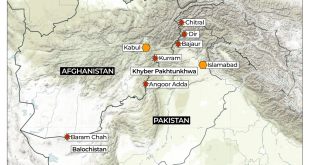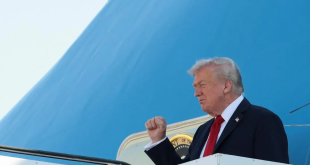KABUL – Deadly clashes between Afghan and Pakistani forces have stopped following mediation by Qatar and Saudi Arabia, marking a fragile pause in one of the fiercest border confrontations in years. Taliban spokesman Zabihullah Mujahid confirmed the truce Sunday, saying hostilities were halted at the request of Gulf mediators after intense overnight fighting left dozens dead on both sides.
The clashes began Saturday night when Kabul accused Islamabad of launching airstrikes inside Afghan territory. Afghan forces retaliated, claiming to have killed 58 Pakistani soldiers and seized 25 military posts. Pakistan, in turn, reported 23 soldiers killed and asserted it had neutralized over 200 Taliban fighters while capturing 19 Afghan positions. Both sides accused the other of violating sovereignty and supporting cross-border militants.
Afghanistan’s Defence Ministry said its actions were defensive, warning that any further “violation of Afghanistan’s sovereignty” would be met with a decisive response. Pakistan’s Interior Minister Mohsin Naqvi condemned Afghan fire on civilians as “a blatant violation of international law,” vowing that “no provocation will be tolerated.”
Amid rising tension, Taliban Foreign Minister Amir Khan Muttaqi, speaking during his visit to India, sought to reassure the region that “everything is alright.” He reiterated Kabul’s commitment to dialogue but warned that Afghanistan had “other options” if Pakistan continued to violate its borders, while denying accusations that Afghan soil shelters the Pakistani Taliban (TTP).
Regional powers rushed to contain the crisis. Qatar and Saudi Arabia called for restraint and diplomacy, emphasizing the need to avoid escalation. Iran joined the appeal, urging both countries to prioritize regional stability. Analysts say Gulf involvement helped prevent further escalation, given Riyadh’s growing defence ties with Islamabad and Doha’s longstanding influence in Kabul.
Despite the ceasefire, tensions remain high along the volatile frontier. Border crossings at Torkham and Chaman remain closed, disrupting vital trade and movement. Both nations have reinforced their military presence, warning they are ready to defend their territory if attacked again.
While the truce marks a temporary relief, diplomats caution that lasting peace will depend on sustained dialogue and mechanisms to address deep-rooted mistrust over militant sanctuaries and border control — issues that have long strained relations between the two neighbors.
 Afghanistan Times Latest News and Analysis from Afghanistan and the Region
Afghanistan Times Latest News and Analysis from Afghanistan and the Region




